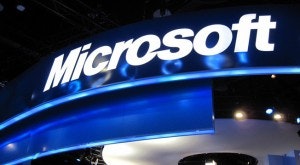Over the last several years, Microsoft Corporation (NASDAQ:MSFT) has watched as competitors like Apple Inc. (NASDAQ:AAPL) and Google Inc (NASDAQ:GOOG) have gradually chipped away at its monopoly control of personal computing. Microsoft stock has endured a “lost decade,” as the success of initiatives in entertainment (Xbox) and cloud computing (Windows Azure, and now Office 365) has been offset by massive losses associated with the Bing search engine and the stagnation of Windows.
Microsoft Stock 10 Year Price Chart, data by YCharts
Microsoft Corporation (NASDAQ:MSFT)’s management has adapted to the changing market environment — albeit slowly — by trying to adopt some of the best features of its competitors’ offerings. For example, Office 365 tries to bring Microsoft Office into the world of Google Inc (NASDAQ:GOOG) Docs by offering cloud storage and collaboration tools. The new Windows 8 interface was designed to be “touch-friendly,” and the Surface tablet was created to provide a model Windows tablet experience.

Windows isn’t what it used to be
The root of Microsoft’s problems is the decline of the Windows operating system. While the PC industry is in no imminent danger of dying out, the growth of tablets is cannibalizing the low end of the market. Netbook sales peaked at more than 32 million in 2010 — not coincidentally, the year that Apple Inc. (NASDAQ:AAPL) released the iPad — but are expected to drop to zero by 2015, according to IHS iSuppli.
Moreover, the growth of tablets is likely to lengthen the PC refresh cycle, a phenomenon that’s already taking shape. Since PC performance is not improving at the same rate seen 10 or 15 years ago, most PC users can wait five or six years between PC upgrades.
Microsoft Corporation (NASDAQ:MSFT) tried to offset the cannibalization impact of tablets through a redesigned touch-friendly Windows 8 interface. Microsoft stock rose last spring and summer as anticipation of the new OS built. However, early sales of Windows 8 PCs has been disappointing, and Microsoft has reportedly been forced to cut OEM prices (at least for some versions of Windows ).
The Windows 8 tablet concept initially seemed quite promising, as it would allow users to run legacy Windows apps with a tablet form factor. Such functionality seemed very appealing for businesses. (Consumers had already adopted the iPad in large numbers.) However, Microsoft Corporation (NASDAQ:MSFT) was too late to the tablet party; Apple Inc. (NASDAQ:AAPL) has repeatedly touted the iPad’s strong penetration of the enterprise and education markets. Enterprises that have adopted the iPad, and built custom iPad-specific apps, are unlikely to switch to Windows tablets later.
Potential carry-over effects
So far, the cannibalization of Windows has not hurt Microsoft’s earnings too much. For the fiscal year to date, Microsoft has seen a slight decline in diluted EPS, from $2.05 in FY12, to $1.99 in FY13. Microsoft Corporation (NASDAQ:MSFT) stock has benefited from the perception that the worst is over, and that the company will return to earnings growth next year.


